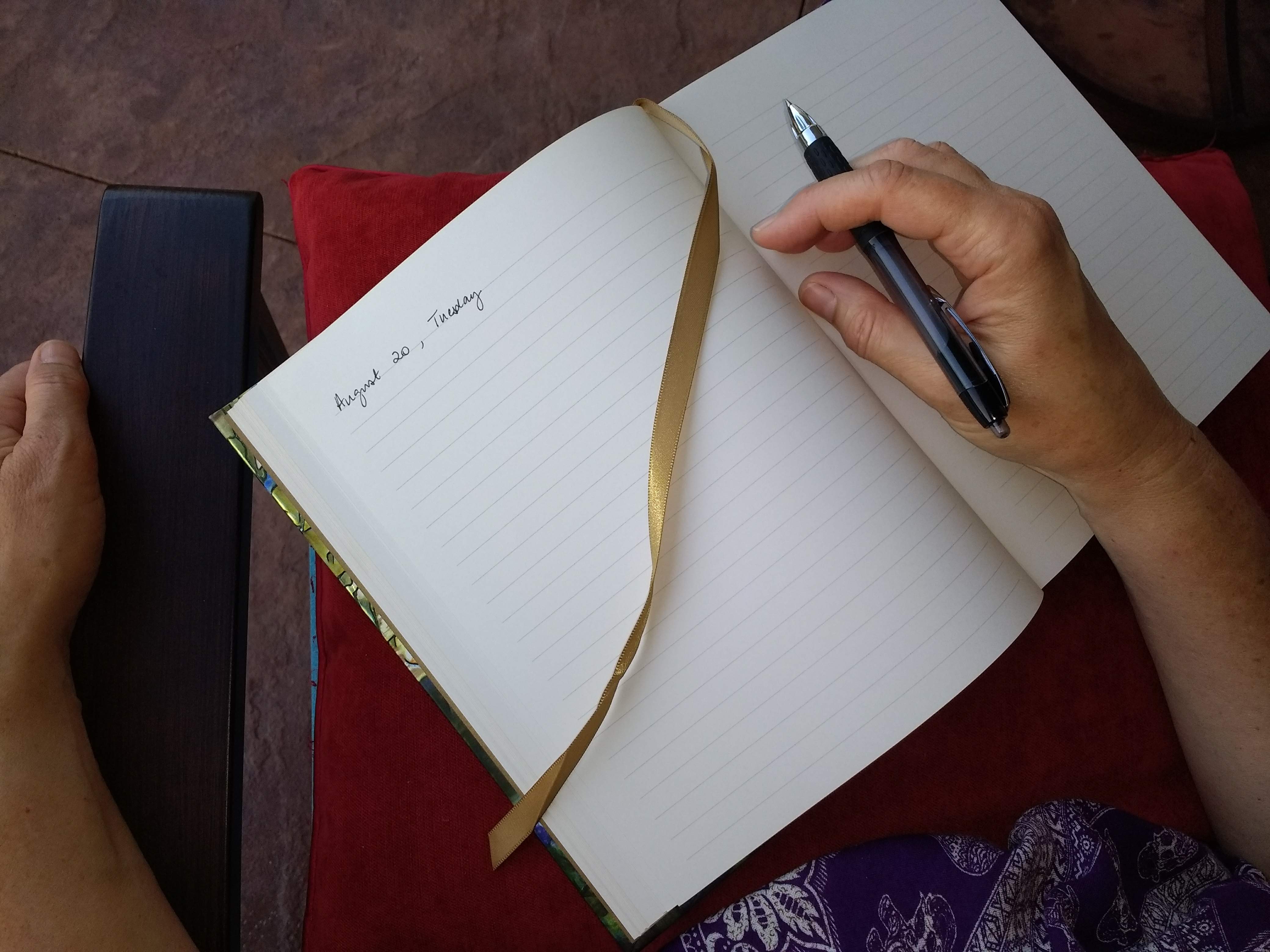Why I journal

You may know that I journal.
I recently read about Oliver Sacks (1933-2015), physician, neurologist, author and fellow journaler. Sacks wrote:
“The act of writing is an integral part of my mental life; ideas emerge, are shaped, in the act of writing… a special, indispensable form of talking to myself.”
Yes, indeed. Nearly every morning, I put the coffee on to brew, indulge in morning Tai Chi, pray the Lord’s Prayer, drink my first cup of coffee without artificial light and then I write in my journal. Of all the forms of writing that I do, journaling is the most pleasurable.
Journaling has no deadlines, only intention. I write for an audience of one, and my sole measure is honesty. I begin with a paragraph that is purely descriptive of my own sensations, internal and external, like this:
“I feel my crossed legs, my left leg draped over my right. I feel the soft cushion on my lap and the hard edges of this journal. I feel my warm, loose socks. I feel my clear breath. I feel the cool leather of the chair against my right calf and left elbow. I feel the thick warm sheepskin at my back. I am alive and I feel. I feel my heart, tender and open. Wary. There is pain.”
I write about whatever I thought or felt while drinking my first cup of coffee. The residues of the night, and the day before. The emotions I felt when I first awoke.
And then I keep writing, being as present as possible to whatever arises. I eventually read some devotional material or poetry, and I might be moved to write about that. If time allows, I review my calendar for the day, and I may write down my intentions for each event or meeting. I write about what I want to remember today.
I prefer a particular type of journal, with lines and a ribbon bookmark. One that lies open easily. I order them in advance, because I like to have one or two empty ones waiting for me. I enjoy knowing that all those blank pages await.
When I complete a journal, I write the beginning and ending dates in the front cover, and then before I shelve it, I re-read it, creating an index at the back so that I can return to key moments, insights and quotes.
The process of writing is always revealing. In my personal journaling, I sometimes write a sentence, and then write: “Question that.” Or, “Is that true?”
In my scientific writing, I frequently begin a paragraph that gradually falls apart. I begin with an idea in mind, but then realize that I can’t even convince myself of my own argument. Sentences appear on the screen and then disappear again.
But in my journal, nothing disappears. When I question myself, the original remains. The whole process is there for the record.
I have no doubt that this is time well spent, and I close my journal with clarity and energy for the day. Oliver Sacks wrote in one of his late journals that he started journaling at the age of 14, and by the age of 70, had more than 1,000 journals of all sorts.
Do you journal? If you do, I’d love to hear about it.
Rebecca Stoltzfus




